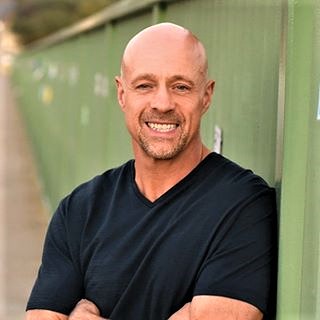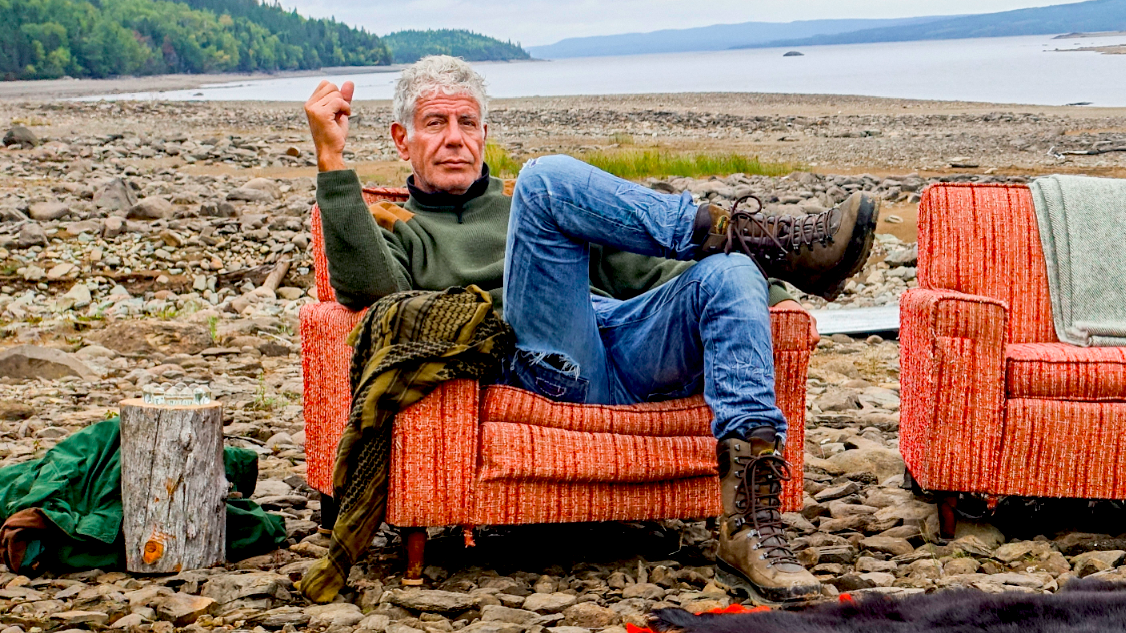“But, why?”
We are all asking that question, not just as it relates to Anthony Bourdain, but in response to every suicide.
Those left behind, the ones whose grief must be limitless, understandably spend a great deal of time trying to make sense out of something that won’t ever will.
Mental illness is completely illogical and trying to apply logic in search of an answer to, “why? “is like trying to change a tire with a toothbrush; it just doesn’t work.
Yes, there is science and data and studies and such, but in the end, we are dealing with a condition of the mind, and let’s be honest, how much do we really know about what’s upstairs?
That aside, and even if we were to disregard the truth about the depth of our actual brain knowledge, it is the behaviors that result from the various disorders that dispel logic and make absolutely no sense.
Mental illness causes those of us who live with its evil cousins to act in random, sometimes bizarre, uncharacteristic, shocking and never before ways.
Believe me, I know.
On August 31, 2011, I was going to commit suicide by jumping off the 730-foot high Foresthill Bridge, the 4th tallest bridge in the United States.
At the time, I was co-directing a nationally recognized animal sanctuary, one that just 14 months earlier was featured as the cover story in the Life section of USA Today.
But, as I have said before, and will do so for as long as I live, sometimes what hurts the most can’t be seen. This, unfortunately, was the case for Chef Bourdain, and was, and still is at times the case for me.
I am certain the first thing that entered the mind of the emergency responder who approached me was, “what’s a nice guy like you doing on a bridge like this?”.
Why would a well-known, well-respected, well-traveled, well-read, man of the world, successful by a great many standards, choose to end his life?
No one will ever know the full reason, including me who stands at the far reaches of the circumference of Chef Bourdain’s life.
But, the Chef and I were brothers of sorts, members of a large and ever-growing family of men, women, and children the world over who live with some form of mental illness.
That makes us relatives, and since we were family, I feel a certain liberty to share my thoughts.
I am 55 years old, part of the same generation as the Chef. Our grandfathers and fathers are from the WWI, Depression, and WWII era. The world was a very different place at the time, and it demanded men to be a certain way.
The inevitable suffering of life was to be accepted with little or no complaint because if nothing else, there was always someone worse off than you.
If you were to select the most prevalent mantra of the times, it was to work hard and keep your mouth shut because nobody wants to hear your problems.
Added was the admonition was, take what’s given to you and don’t ask for more, keep a still upper lip, and for God’s sake, never let them see you cry.
That’s just the way it was.
Got it.
These men, the ones who raised us, were, in fact, tough as nails. They were also emotionally unavailable, and suffering terribly on the inside, and had no possible way to express their pain or ask for help.
Fast forward to modern times, and a vastly different world.
Information and data are flying around at what seems like the speed of light. The act of communication happens through a myriad of devices, ALL the time, and there are scant places you can go and hide for some good old-fashioned peace.
The great mysteries of life keep getting revealed, and with each discovery, an equal measure of the sacred unknown is lost.
And, with incessant need to be connected globally, the once big blue marble has become rather small.
In tandem with all of these radical changes come new expectations of what a man should be:
He is expected to be fluid and flexible.
He is to anticipate and then respond to his partner’s needs.
He is asked to access his feeling, emote appropriately and without delay, then process the experience and share authentically.
He is mandated to be vulnerable, cry, and reveal his true inner self. And, after each of these cathartic moments, is sincerely implored, “if you need help, just ask.”
Let me go back to the tire and the toothbrush for a moment.
Imagine a wide chasm, a great divide between one’s personality influences and the present time.
Now, imagine being raised a certain way and your heritage being not so softly whispered in your ear day after day after day.
Next, imagine yourself being expected to not only abandon a great deal of what shaped you in the past but simultaneously needing to develop a new approach to your current life, all without the benefit of an instruction manual.
So, why are we surprised by the fact that middle age men die by suicide so often?
Could it be the generation of the Chef and I are the poster children for living between a rock and a hard place?
Could it be that our invisible suffering can rise to the point of intolerability, but when we open our mouths to share how we feel, our voices are silenced by the men of our past?
Could it be this terrible circumstance creates isolation, disconnection and then the true killer, hopelessness?
I believe my brother, Anthony, both wanted and needed help, but didn’t know how to ask or accept it. I believe he arrived at a point of dark and awful despair in which he wasn’t able to reconcile his heritage with his need for help.
I personally feel those of us with mental health issues are far more connected to our feelings than the rest. And, when those feelings rise to an acute level, colored through and through with deep and illogical self-hatred, our pain can become unbearable.
In those moments, we are not looking to be happy; we just want the pain to end.
My brother was hurting.
My brother was in a great deal of searing emotional pain.
But don’t you dare say my brother was weak-minded, and I’ll slap your face if you say he acted selfishly.
Let me let you in on a secret; if you arrive at a place where you feel your presence does more harm than good, and you believe with all your heart, mind and soul that the world would truly function better, including your family, without you, the choices you make from that place feel selfless, not selfish.
Believe me, I know.
And so, how can we honor this beautiful man, Anthony Bourdain?
How about we keep a careful watch on the “strong ones,” the men we least expect could be hurting?
How about we press past the, “don’t worry, I’ll be fine,” and act in a way that a man knows he can trust us to be accepting, understanding and compassionate?
How about we create a safe place for a real man to tell his story so he can, in turn, reach out his hand, and we, in turn, take hold of it and walk with that man to get him the help he so justly deserves?
How about we pay closer attention, and move past comfortability, and make what can be a life-saving difference in the life of a man we love?
How about we do all that?


